Apokries: The Three Weeks of The Greek Carnival “Triodion” are Already Begun | Discover More about Pieria Region’s celebration traditions
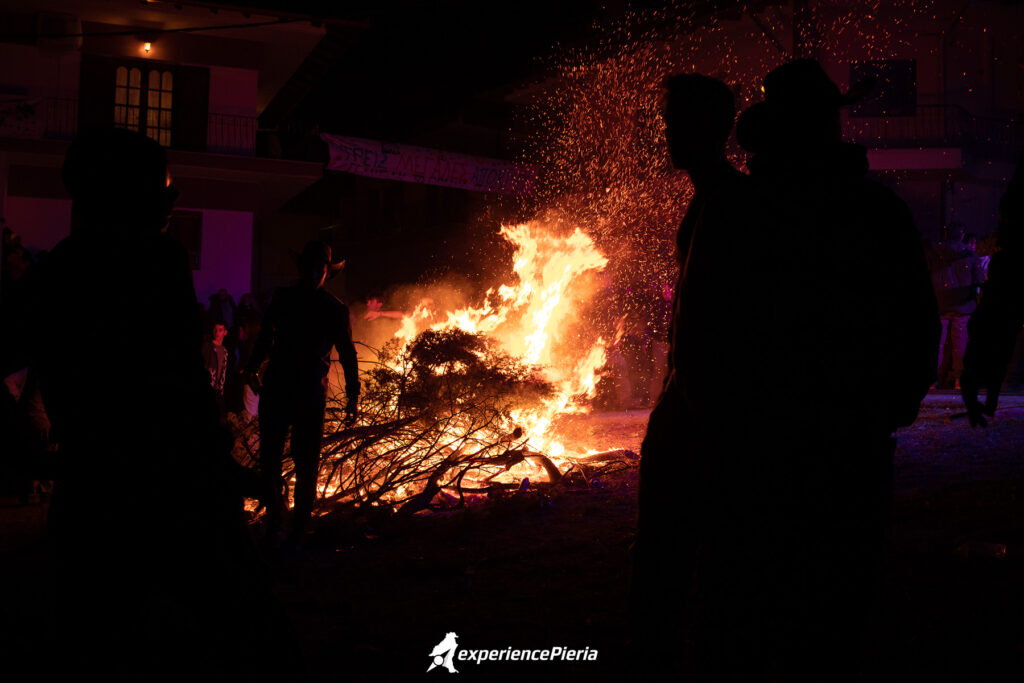
Apokries in Pieria: The Greek Carnival & Triodion Traditions
Carnival season, called “Apokries,” is one of the liveliest times in Greece. In Pieria this means parades, masks, traditions and communal joy. For travelers curious about Greek culture, here’s the full guide.
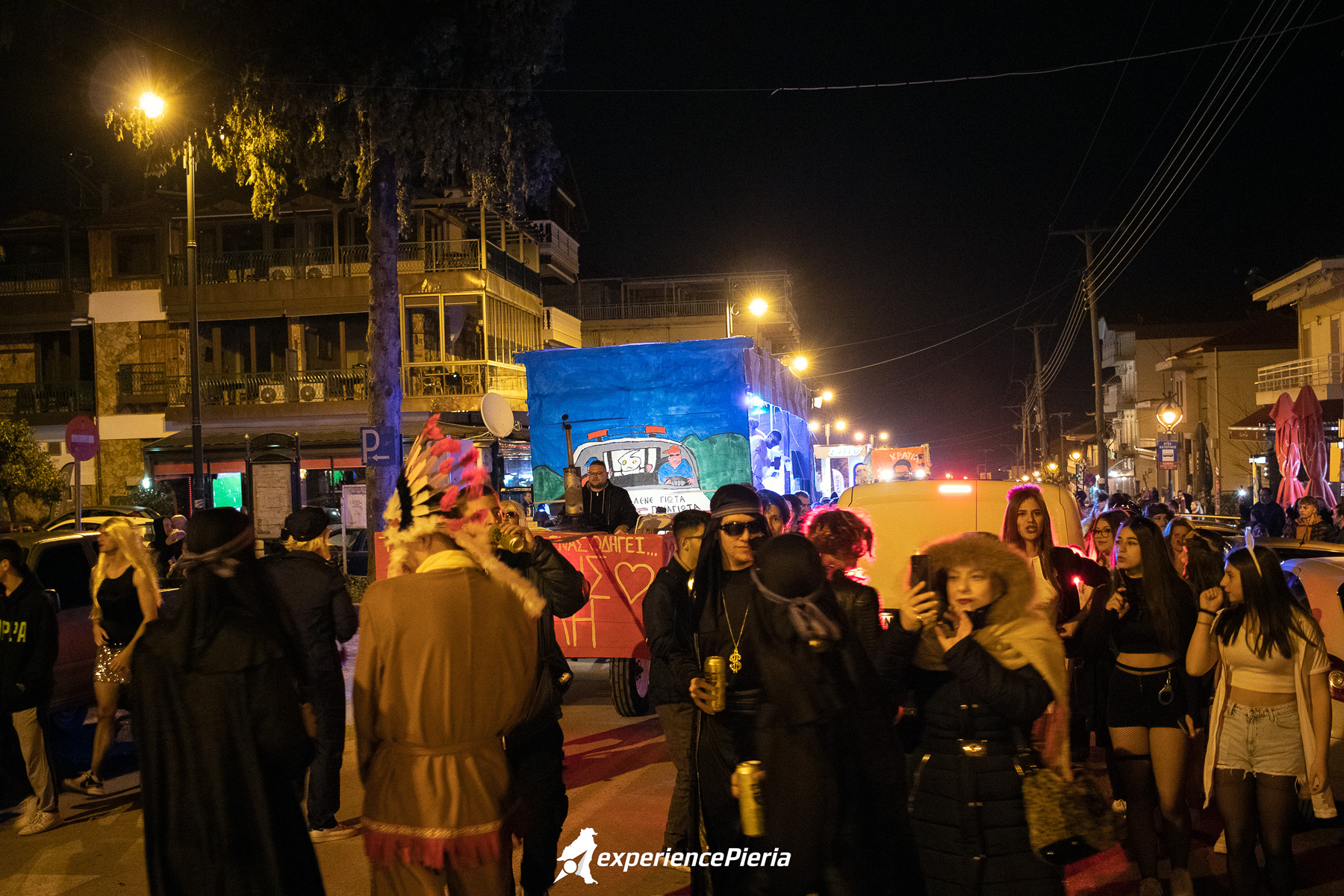
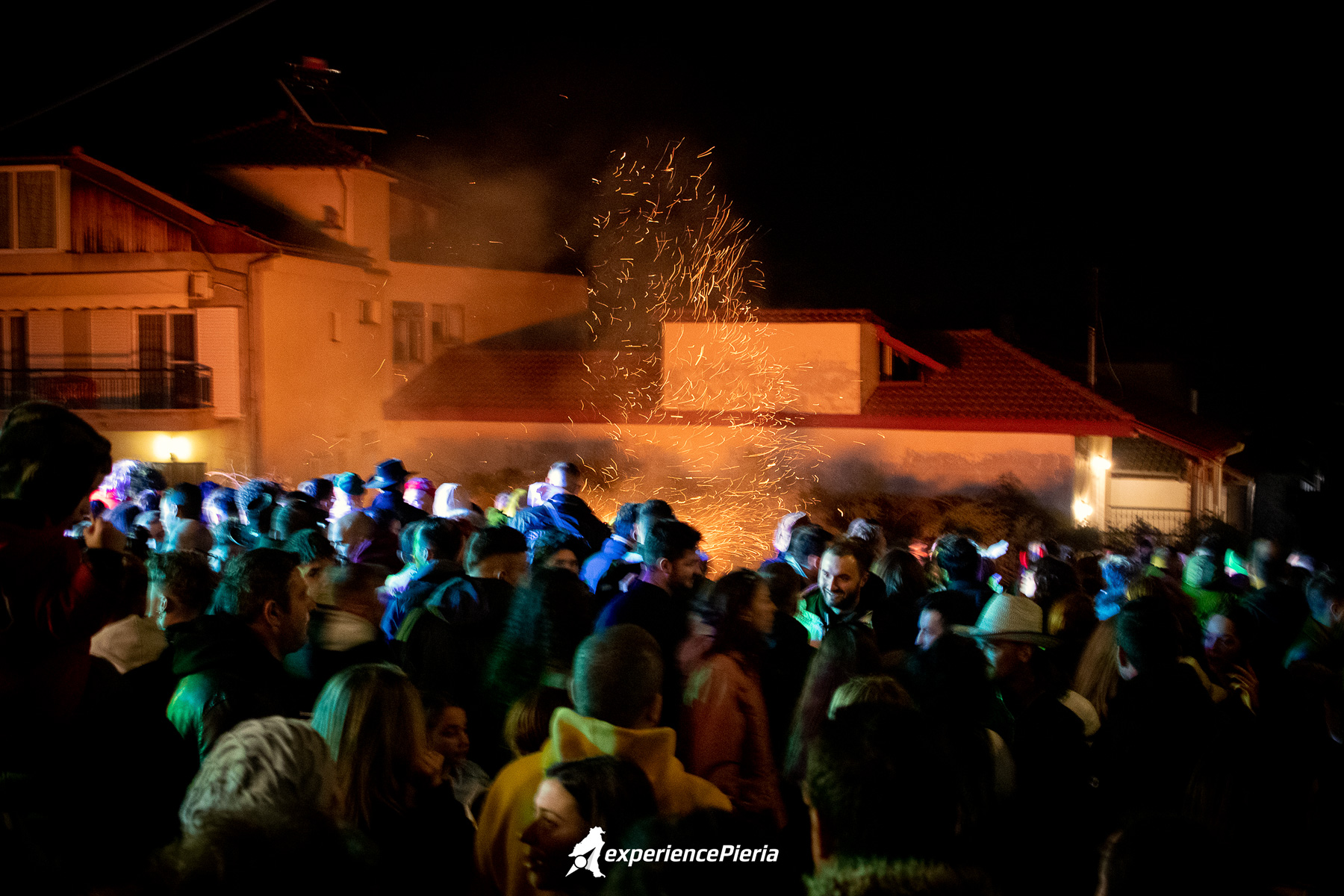
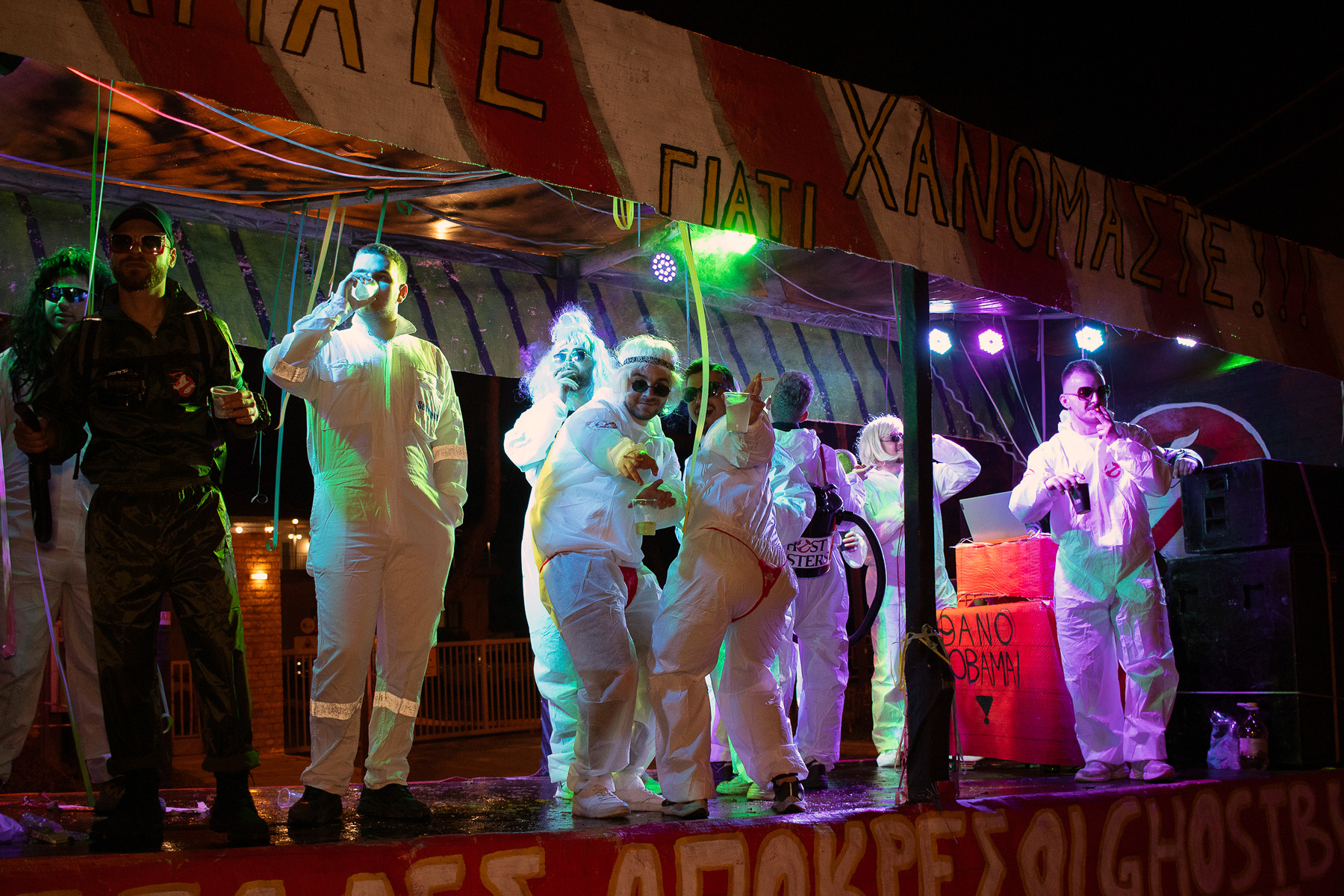
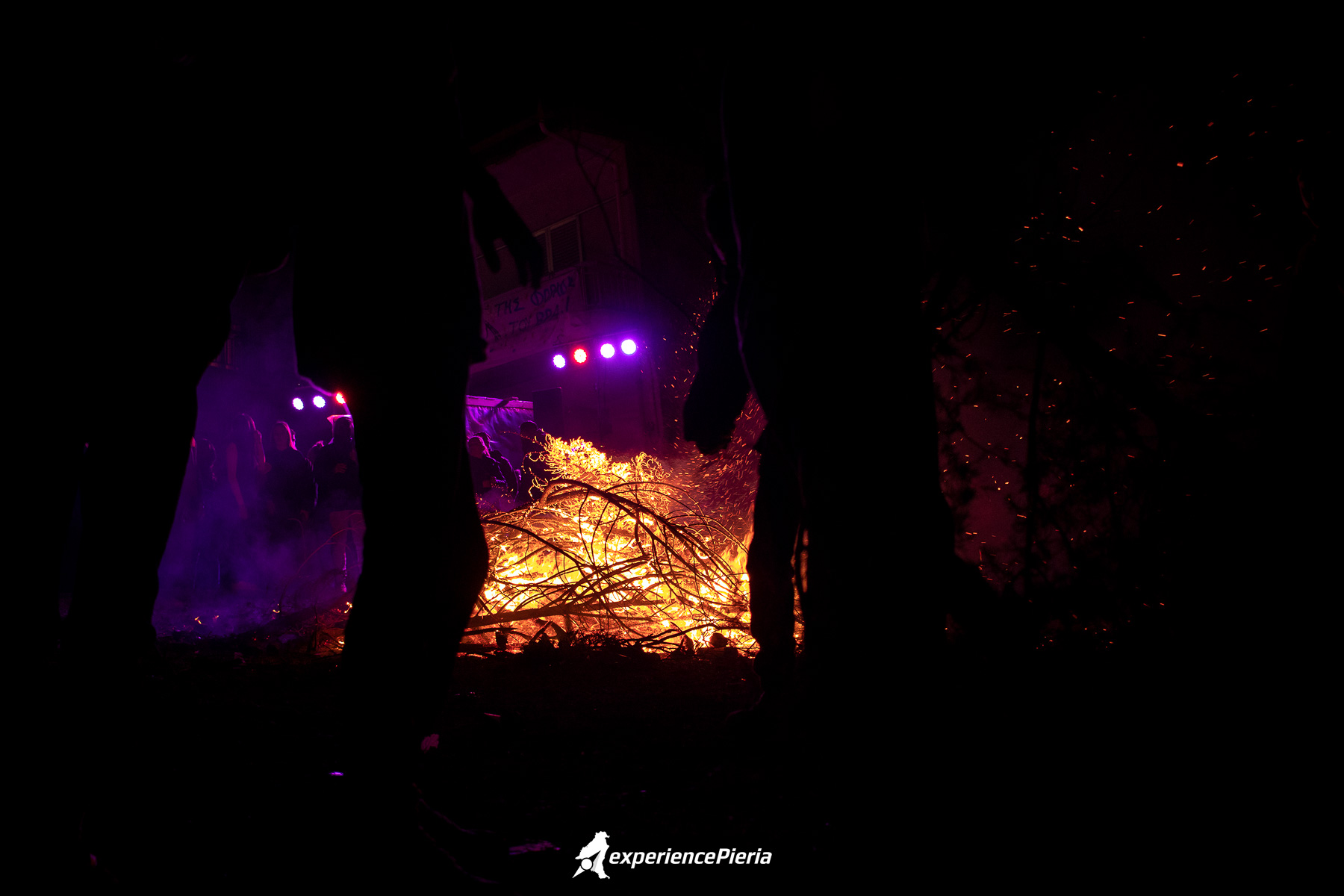
The Greek Carnival, known as Apokries, is underway across Greece. Families, friends, and communities don masks, take to the streets, and engage in playful pranks — all in the name of celebration and tradition. In 2023, Apokries spanned from Sunday, February 5th to Sunday, February 26th. It’s a chance for joy, feasts, and cultural expression before the solemnity of Lent begins.
What is “Triodion” & the Weeks of Apokries?
Apokries is framed by the **Triodion**, the liturgical book guiding the three carnival weeks, leading up to Easter. Each week has a name and cultural character:
- Profoni Week: The first week, when Greeks begin preparing meats and special foods for coming celebrations.
- Kreatini / Tsiknopempti Week: Often called “Meat Week”, restaurants fill with grilled meats, and customs encourage communal feasting.
- Tyrini Week: The final week before Lent, when meat is no longer consumed, but dairy (cheese) is allowed. The culmination is **Cheese Sunday**, when the Carnival King is symbolically burned to close the festival and usher in the Great Lent.
How Apokries Is Celebrated in Pieria
In Pieria, especially in Litochoro, Apokries is not just parade floats and confetti. Street theater takes place in old alleys, where characters perched on balconies exchange local dialect gossip and jokes. Parades march down main streets. Masks, costumes, and music weave through the nights — everyone becomes a participant. The burning of the Carnival King, or burning of cedars, is a visual and symbolic highlight marking the end of festivities.
Why Travelers Should Experience Apokries
– Embrace local tradition and folklore up close.
– Delight in playful costumes, community energy, and live performances.
– Enjoy the last weeks of abundant Greek feasting before the fasting season.
– Visit archaeological sites and museums while the temperatures are cool and crowds are light.
– Capture colorful moments in villages and towns dressed in masks, music, and flame.
Travel Tips for Attending Apokries
- Check local schedules ahead — different towns hold their main parades on different days.
- Bring a simple mask or lightweight costume — locals often improvise.
- Be ready for spontaneous performances in alleys and plazas.
- Embrace the food — many taverns serve festive specialties during this time.
- Respect traditions — photography is welcomed, but sensitivity to local customs is appreciated.
Closing — Join the Mask & Music
Apokries in Pieria is more than a festival — it’s a living pageant of identity, community, and joy. Whether you’re a traveler, photographer, or cultural explorer, this is your invitation to dance, laugh, and see Pieria at its most expressive.
Want to dive deeper? ➤ Read our full article on Winter in Pieria & more traditions.
Follow & Stay Updated: Instagram • Facebook
SEO note: Keywords: Apokries Pieria, Greek Carnival Litochoro, Triodion tradition Greece, burning carnival king, Greek folk masque, Pieria cultural events, Carnival in Greece travel guide.
